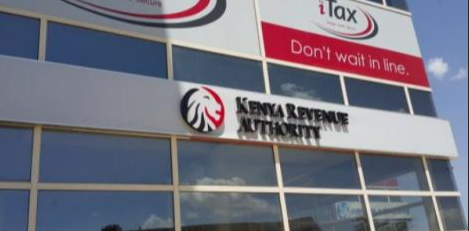
 KRA/FILE
KRA/FILEThe Kenya Revenue Authority (KRA) has announced that its Integrated Customs Management System (iCMS) will experience a temporary disruption on Sunday, October 12, 2025, due to scheduled maintenance.
In a notice issued on Saturday, KRA informed stakeholders that the system will be unavailable for an eight-hour period and apologised for the inconvenience.
“Please be advised that there will be a scheduled maintenance of iCMS from Sunday, October 12, 2025, 6:00 am to Sunday, October 12, 2025, 2:00 p.m. We regret any inconvenience caused,” the authority said in its statement.
It further clarified that the planned work will affect all iCMS users, both internal and external, who rely on the platform for customs operations.
During this time, the system will be fully unavailable, meaning that users will be unable to access its services until maintenance window is completed.
The announcement is particularly relevant to businesses, importers, exporters, and clearing agents who rely on iCMS for customs documentation and related services.
With the system temporarily offline, KRA advised users to plan accordingly and factor in the downtime when preparing their transactions.
The Integrated Customs Management System, commonly referred to as iCMS, is KRA’s digital platform designed to handle customs operations.
It serves as a centralised system for processing import and export declarations, managing cargo clearance, and facilitating communication between KRA and stakeholders.
The system is used by both internal KRA officers and external users such as clearing agents, shipping lines, and traders. It enables real-time processing of import and export documentation, cargo tracking, and payment of duties through a unified system.
By consolidating customs procedures on a single digital platform, iCMS helps streamline operations, enhance efficiency, and provide greater transparency in cross-border trade.
KRA has previously highlighted iCMS as a critical tool in modernising customs operations, with the goal of making trade processes faster, more reliable, and more accessible to stakeholders.
Its functionality allows for better oversight of goods entering and leaving the country, while reducing delays and paperwork.
By integrating multiple government and private-sector players—including clearing agents, shipping lines, and the Kenya Ports Authority—the system enhances transparency, reduces clearance times, and minimizes opportunities for fraud and tax evasion.
The Integrated Customs
Management System (iCMS) has enhanced efficiency in cargo clearance by
digitizing all customs processes and improving real-time data sharing across
border points.
Since its rollout, the iCMS has played a key role in
modernizing Kenya’s customs management, boosting revenue collection, and
aligning the country’s trade facilitation efforts with international standards
set by the World Customs Organization.












